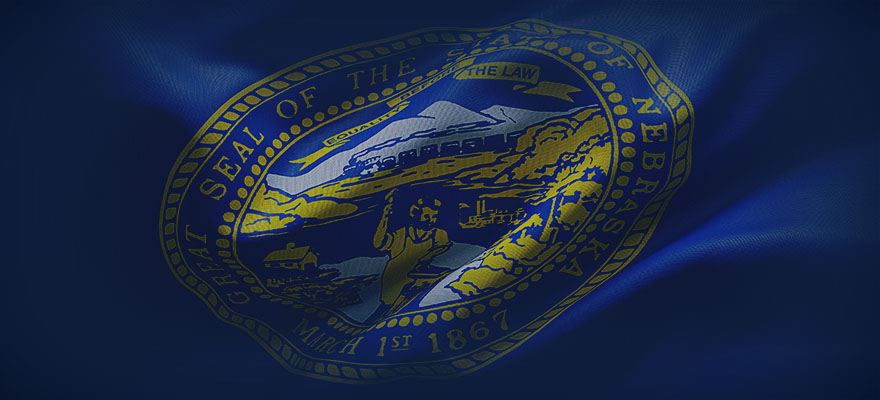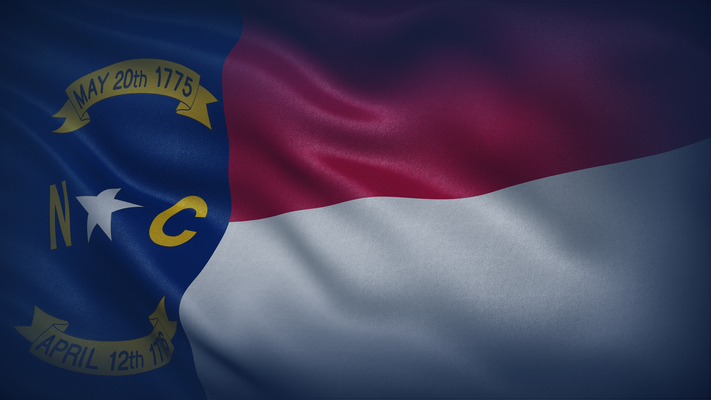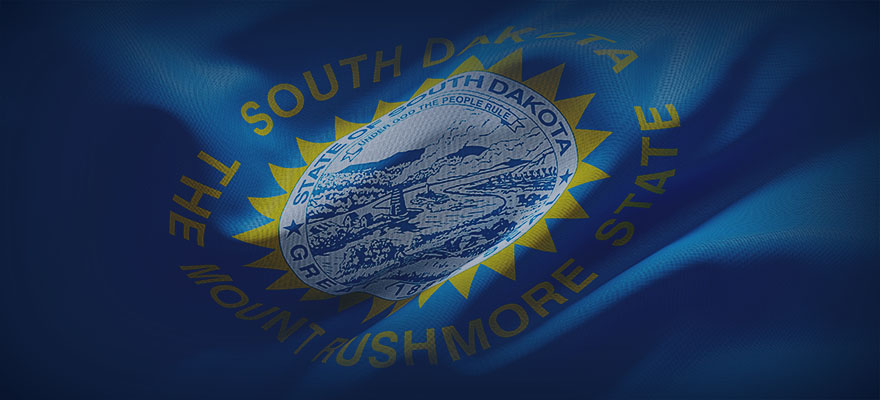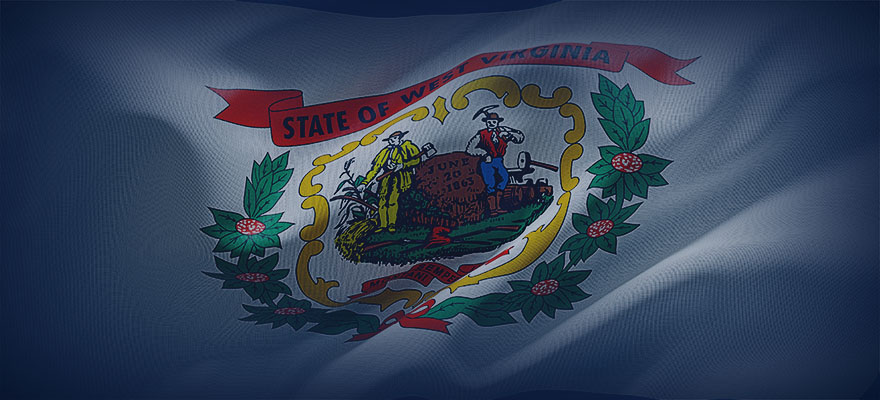Updates by State
- Alabama Grocery Tax Reduction
- Arizona Supreme Court Ruling Opens Door for Pinal County Transportation Tax Refunds
- California Department of Tax and Fee Administration (CDTFA) Imposing New Recycling Fee for Battery-Embedded Products
- Nebraska Revamps Good Life Districts with LB 707
- Nevada: My Nevada Tax Updates – Modified Business Tax and Account Structure
- New Jersey: Major Upgrades to the Tax-Filing System
- North Carolina: Penalty Relief Extension for Disaster-Affected Businesses
- North Carolina: New Transportation Commerce Tax
- Ohio’s 2025 Expanded Sales Tax Holiday: What You Need to Know
- South Dakota: Collection Allowance Suspension
- Tennessee: Sales Tax Refunds for Disaster Relief
- Utah Removed Transaction-Based Economic Nexus Threshold
- West Virginia Eliminates Accelerated Tax Payment Requirement for Large Businesses
Alabama Grocery Tax Reduction
Written by: Adore Walker
Alabama Governor Kay Ivey has signed Alabama House Bill 386, which reduces the state’s sales tax on groceries. Beginning September 1, 2025, the grocery tax will be lowered from 3% to 2%. This is the second tax reduction since 2023, when the grocery tax was decreased from 4% to 3%. The legislation also permits counties and municipalities to reduce their own sales and use tax on food items. Alabama has historically taxed groceries at a higher rate than most states.
Arizona Supreme Court Ruling Opens Door for Pinal County Transportation Tax Refunds
Written by: Daniel Tilson
On March 8, 2022, the Arizona Supreme Court issued a decisive ruling that invalidated the two-tiered transportation excise tax levied by the Pinal Regional Transportation Authority (PRTA). The tax, which had been in effect since April 2018, was deemed legally unenforceable, prompting the Arizona Department of Revenue (ADOR) to halt its collection after the March 2022 filing period.
What was the PRTA Transportation Excise Tax?
The tax in question was a regional transportation excise tax imposed by the PRTA and collected by the Arizona Department of Revenue as part of the state’s broader Transaction Privilege Tax (TPT) structure. The transportation excise tax was a tiered tax with the first $10,000 of any single item being taxed at a half percent (½%) rate, and the remaining amount above $10,000 being exempt.
Unlike traditional sales taxes, Arizona’s TPT is a tax on businesses for the privilege of conducting business within the state, meaning that businesses—not consumers—are legally responsible for paying the tax.
The now-invalidated tax applied to businesses operating in Pinal County or conducting taxable business with customers located there. However, it specifically excluded business activity under the commercial lease classification or reported under the use tax.
Who Is Eligible for a Refund?
Only businesses that filed and paid the Pinal County Transportation Excise Tax between April 2018 and March 2022 may submit a request for a refund. The refund is not available to consumers, nor can businesses transfer or assign their refund rights to customers.
Eligible businesses may choose one of the following options:
- Request a refund of some of the monies paid, plus applicable interest
- Request a refund of all monies paid, plus applicable interest
- Waive their rights to any refund
Important: Refunds are only available for eligible TPT classifications. No refunds will be issued for taxes reported under commercial lease (business codes: 013, 213)* or use tax classifications (business codes: 026, 029, 030, 129, 299, 729)*. *There may be other business codes affected by this ineligibility.
How to Request a Refund or Waiver
To request a refund or waive your rights, businesses must complete the Request for Refund or Waiver of Pinal County Transportation Excise Tax form (Form 11433). This is the only acceptable method for submitting a request. Businesses should not use a Refund Request Workbook or file amended returns for this purpose. Completed forms may be submitted to Pinal County via email, fax, or mail.
Pinal County is responsible for reviewing, approving, or denying refund requests. Once a request is submitted, neither ADOR nor Pinal County can change the choice made on the form.
Deadline and Contact Information
The deadline to submit refund or waiver requests is April 9, 2026.
While the Arizona Department of Revenue initially collected the tax, it does not make determinations on refund eligibility or status. For inquiries regarding the status of a refund or waiver request, contact the Department at (602) 716-6394, but note that only Pinal County makes the final decision on approvals.
Additional Information can be found on the AZ DOR website.
California Department of Tax and Fee Administration (CDTFA) Imposing New Recycling Fee for Battery-Embedded Products
Written by: Daniel Tilson
Beginning January 1, 2026, California will require a Covered Battery-Embedded (CBE) Waste Recycling Fee on the sale or lease of certain electronic products with non-removable batteries. If your business sells or leases these products, you’ll be responsible for collecting the fee from customers at the point of sale.
California defines a CBE product as “any product containing a battery from which the battery is not designed to be easily removed with no more than commonly-used household tools.” CBE products do not include the following:
- Covered Electronic Devices subject to the eWaste recycling fee
- Certain medical devices, as specified in CA Public Resources Code section 42463(f)(2)(A)
- Certain energy storage systems, as specified in CA Public Resources Code section 42463(f)(2)(C)
- Certain electronic nicotine delivery systems, as specified in CA Public Resources Code section 42463(f)(2)(D)
CalRecycle will determine the CBE waste recycling fee for the following year by October 1st of the preceding year (i.e., 2026 fee will be determined by October 1st, 2025). Rates will be effective on January 1 each year.
Registration, filing, and payment will all be handled through the CDTFA Online Services portal.
Nebraska Revamps Good Life Districts with LB 707
Written by: Claire Ashcraft
Nebraska recently enacted LB 707, introducing sweeping changes to its economic development framework. At the center of these reforms are the Good Life Districts, first implemented in 2024 to promote long-term growth in targeted areas. The updated legislation aims to strike a balance between local empowerment and fiscal responsibility, making these districts more efficient, accountable, and results-driven.
Under LB 707, municipalities are now authorized to establish “project areas” within Good Life Districts, enabling more localized and strategic planning. These project areas must meet specific population and eligibility requirements, and each must have its own development plan, budget, and oversight agreement with an economic development partner.
To promote responsible use of public funds, the bill establishes a state sales tax “turnback” mechanism. This provision returns 50% of the sales tax revenue generated within each project area back to the district for reinvestment in infrastructure and services that support economic growth.
To curb unnecessary spending, LB 707 caps non-revenue-generating costs, such as beautification projects and other non-essential public amenities, at 20% of a project’s total eligible expenditures. The bill also gives municipalities the authority to impose a business occupation tax within these districts. However, local sales taxes are prohibited to maintain uniformity and reduce taxpayer burden.
One of the bill’s most significant accountability measures is a new three-year performance requirement. If a project area fails to meet its development goals within that timeframe, the municipality must terminate the project area and may be required to return any unspent state funds.
For any questions or additional information about LB 707 and the resulting changes, please contact the Nebraska Department of Revenue.
Nevada: My Nevada Tax Updates – Modified Business Tax and Account Structure
Written by: Daniel Tilson
The Nevada Department of Taxation will be transitioning the Modified Business Tax to the My Nevada Tax portal starting on December 8th, 2025. The final quarter available for filing through Nevada Tax Center will be the third Quarter of 2025 (July-Sept), due by October 31, 2025. 4th Quarter 2025, due January 31, 2026, will be the first quarter fileable through My Nevada Tax.
If a business closes between October 1, 2025 and December 8, 2025, and you wish to file a final return before January 31, 2026, you must file a paper return.
Modified Business Tax Accounts will be migrated over to My Nevada Tax for Administrator-level accounts. Administrators will need to approve access to the Modified Business Tax for other accounts.
Additionally, there are changes being made to account numbers/identifiers:
- Taxpayer Identification Numbers (TIDs) will no longer be the primary identifier, nor will they be issued for new accounts
- Federal IDs (FEIN/SSN/ITIN) will be the main identifier for entities
- New Account Numbers will be issued for each type of tax account assigned to an entity. Log in to My Nevada Tax to view those new account numbers
New Jersey: Major Upgrades to the Tax-Filing System
Written by: Andrea Morrison
New Jersey upgraded its tax filing system to make things easier and more efficient for taxpayers. Some services were temporarily unavailable while the update happened, so here’s what you need to know.
What’s Changing?
- System Downtime: From April 26 to May 14, 2025, you weren’t able to file or pay taxes online. However, you could still view past filings.
- Extended Deadlines: If you had taxes due between May 1 and May 30, you had an extra 30 days to file without penalties.
- New Online Tax Portal: A new website will allow businesses and individuals to file taxes, view payment history, and store tax documents in one place. You don’t have to use it, but it will make managing taxes easier.
- Phone Filing Ends: The old phone system for filing taxes will no longer be available. From now on, you’ll need to file online.
Who Does This Affect?
These changes impact various types of taxes, including:
- Sales and Use Tax
- Hotel and Motel Fees
- Cannabis Taxes
- Casino Revenue Taxes
- Tourism Fees in Atlantic City and Cape May
How to Prepare
- Sign up for the new tax portal
- Check your deadlines and take advantage of the 30-day extension if needed
- Switch to online filing if you used the phone system before
For more details, visit the NJ Division of Taxation website.
North Carolina: Penalty Relief Extension for Disaster-Affected Businesses
Written by: Christina L. Stainbrook
The North Carolina Department of Revenue has issued a notice granting penalty relief for sales and use tax obligations to taxpayers affected by Hurricane Helene.
The relief applies to taxpayers who, due to the storm, were unable to meet requirements such as obtaining a sales tax license, filing returns, or making payments on time. Penalties may be waived for:
- Failure to obtain a sales and use tax license
- Failure to file a sales and use tax return
- Failure to pay sales and use tax when due
- Failure to file an informational return related to sales tax
To qualify, the original due date of the filing or payment must fall between September 25, 2024, and September 25, 2025. All affected returns and payments must be filed and paid by September 25, 2025 to receive relief.
Taxpayers must submit Form NC-5500 (Request to Waive Penalties) and write “Hurricane Helene” at the top of the form to ensure proper processing.
North Carolina: New Transportation Commerce Tax
Written by: Christina L. Stainbrook
New Tax Went Into Effect on July 1, 2025
The North Carolina Department of Revenue (NCDOR) has announced the implementation of a new Transportation Commerce Tax, effective July 1, 2025. This tax applies to ride services provided by both taxi operators and transportation network companies (TNCs), such as rideshare services. All affected businesses are required to register with the NCDOR by this date.
Key Details of the Transportation Commerce Tax
- Effective Date: July 1, 2025
- Applicable Services: All ride services offered by taxis and TNCs
- Registration Requirement: Businesses should have registered with the NCDOR before July 1, 2025
- Tax Collection: Starting July 1, 2025, businesses are to collect the tax from customers
- Filing and Payment: Registered entities must file Transportation Commerce Tax returns and remit payments directly to the NCDOR
- Tax Rates:
- 1.5% of gross receipts for exclusive-ride services
- 1.0% of gross receipts for shared-ride services
This tax initiative was established under Session Law 2023-134. For registration procedures, frequently asked questions, and additional information, businesses should visit the NCDOR’s official website at ncdor.gov.
Ohio’s 2025 Expanded Sales Tax Holiday: What You Need to Know
Written by: Andrea Morrison
Ohio is giving shoppers a break with its 2025 Expanded Sales Tax Holiday, running from August 1 at midnight to August 14 at 11:59 p.m. This two-week event allows consumers to purchase certain items tax-free, helping families save money on essential goods.
What’s Included?
During the holiday, almost all tangible personal property priced at $500 or less is exempt from state sales tax. This means you can buy a variety of items without paying extra, including:
- Electronics – Computers, televisions, and gadgets
- Clothing – Apparel for all ages
- Books – Novels, textbooks, and more
- Home Goods – Furniture, kitchenware, and décor
- Sporting Goods – Equipment and apparel
- Food and Beverages – Dine-in meals, dietary supplements, and soft drinks
What’s Not Included?
While many items qualify, some purchases are still subject to sales tax, such as:
- Motor vehicles
- Watercraft and outboard motors
- Alcoholic beverages
- Tobacco and vapor products
- Items containing marijuana
How Businesses Can Prepare
Retailers must correctly apply the tax exemption to eligible items. The Ohio Department of Taxation provides guidance to help businesses comply with the rules and avoid penalties.
Online Shopping and Shipping Rules
If you order an eligible item during the tax holiday, it qualifies for the exemption—even if it’s delivered after the holiday ends. However, shipping and handling charges may still be taxable unless all items in the shipment qualify.
Why This Matters
Ohio’s expanded tax holiday is designed to ease financial burdens for families, especially as they prepare for back-to-school shopping. With more items included and a longer duration, shoppers have a greater opportunity to save.
For full details, visit the Ohio Department of Taxation’s official page.
South Dakota: Collection Allowance Suspension
Written by: Amanda Bratton
South Dakota will be suspending the collection allowance for sales and use tax returns that are filed and paid electronically. Per House Bill 1037, the suspension will be in effect from July 1, 2025 to June 30, 2028. Currently, the collection allowance is 1.5% of the tax due, with a cap of $70 per return period.
Tennessee: Sales Tax Refunds for Disaster Relief
Written by: Christina L. Stainbrook
The Tennessee Department of Revenue has issued a notice detailing a sales tax relief program for individuals impacted by federally declared natural disasters within the state.
Eligible residents who have received assistance from the Federal Emergency Management Agency (FEMA) can apply for refunds on sales tax paid for specific items purchased to restore their primary residences. These items include major appliances and residential furniture, each with a purchase price of $3,200 or less, as well as residential building supplies priced at $500 or less per item. The maximum refund available per residence is capped at $2,500.
To claim this refund, individuals must submit their application within one year from the date on their FEMA decision letter. The application process requires a completed Natural Disaster Claim for Refund form, a copy of the FEMA decision letter, and receipts or invoices evidencing the payment of Tennessee sales tax on eligible items. Applicants can file their claims either by mail or electronically through the Tennessee Taxpayer Access Point (TNTAP) portal. It’s important to retain all relevant documentation for at least three years, as the Department may request further verification. Filing false or fraudulent claims can result in civil penalties of up to $25,000.
Utah Removed Transaction-Based Economic Nexus Threshold
Written by: Daniel Tilson
On March 25, 2025, the Utah State Legislature passed S.B. 47, amending the threshold for economic nexus regarding sales tax. This amendment has removed the “200 or more transactions” threshold, making total gross sales the only factor for determining nexus.
Effective on July 1, 2025, this amendment stipulates the following for when a voluntary seller or marketplace facilitator must pay or collect and remit sales and use tax:
- Sellers: In the previous or current calendar year, if the seller’s gross revenue from sales of tangible personal property, electronically transferred products, or services for storage, use, or consumption in Utah exceeds $100,000
- Marketplace Facilitators: In the previous or current calendar year, if the marketplace facilitator’s own sales or sales facilitated on behalf of other sellers exceed $100,000
West Virginia Eliminates Accelerated Tax Payment Requirement for Large Businesses
Written by: Christina L. Stainbrook
Effective April 24, 2025, West Virginia Senate Bill 615 repealed the requirement for certain large taxpayers to make accelerated payments for consumers sales and use tax and employer withholding tax.
Previously, taxpayers with average monthly payments exceeding $100,000 were required to remit at least 50% of their June liability by June 20. With the enactment of SB 615, all affected taxpayers may now remit their full June liability according to the standard monthly filing schedule.
The change applies immediately and is intended to simplify compliance and standardize filing requirements.

TRANSACTIONTAX360™
Compliance is just one piece of the transaction tax lifecycle. As your dedicated partner, DMA offers a unique, comprehensive approach to solving your toughest tax challenges. We call it TRANSACTIONTAX360™.
Our transaction tax and tax technology teams work with you to provide jurisdiction- and industry-specific tax expertise along with process optimization and automation.











